The Art of Bargaining in Vietnam: Tips for Shopping in Local Markets
Bargaining is more than just a shopping skill in Vietnam; it’s a cultural tradition and an art form. From the bustling streets of Ho Chi Minh City to the charming night markets of Hoi An, Vietnamese markets offer an array of unique goods. However, knowing how to bargain can make all the difference in how much you pay and how deeply you immerse yourself in local Vietnamese Culture. This guide will equip you with the tools and tips you need to navigate the vibrant world of Vietnamese markets confidently.
1. Why Bargaining is Essential in Vietnam
Vietnamese markets are full of life, color, and diversity. While prices in malls or chain stores are fixed, local markets often operate on negotiable pricing. Vendors expect customers to haggle and even enjoy the interaction, which can lead to lower prices and friendlier relations. For tourists, bargaining isn’t just about saving money—it’s a way to experience the country’s lively traditions and form meaningful connections with locals.
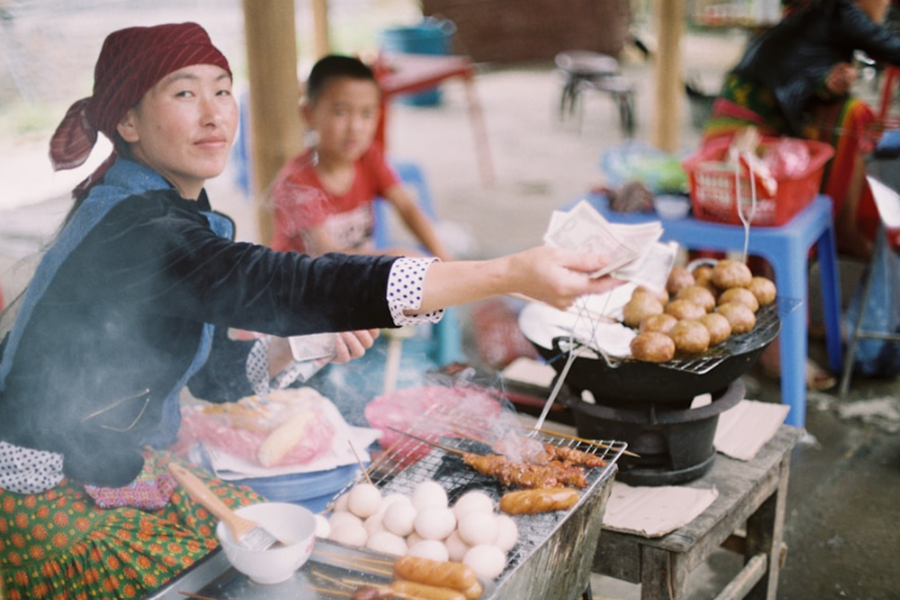

Explore: Unveiling Vietnamese Culture: Traditions, Etiquette & Festivals for Travelers
2. The Culture of Bargaining in Vietnamese Markets
A Time-Honored Tradition
In Vietnam, bargaining is not seen as an argument but as a social exchange. It’s a dance of give and take where both parties aim to find a mutually agreeable price. Many vendors take pride in their negotiation skills and appreciate customers who engage in this cultural custom.




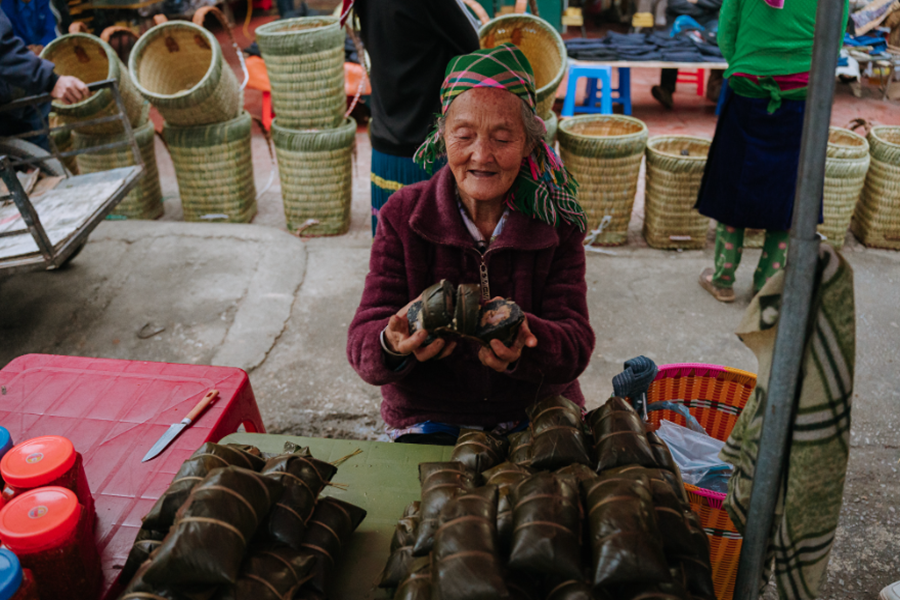

Where Bargaining Happens
Not all places in Vietnam encourage bargaining. Local street markets, floating markets, and smaller souvenir shops are the best spots. However, supermarkets, convenience stores, and branded outlets typically have fixed prices, and haggling is not acceptable there.
🇻🇳 Celebrate the Lunar New Year like a local! Learn more about the Vietnamese Tet Holiday!
3. Famous Markets to Hone Your Bargaining Skills
1. Ben Thanh Market (Ho Chi Minh City)
Ben Thanh Market is a must-visit for anyone in Saigon. It offers a wide range of products, from clothing to souvenirs. Moreover, vendors here are familiar with tourists, so prepare for some spirited negotiations in bargaining in Vietnam.


2. Dong Xuan Market (Hanoi)
Located in the Hanoi Old Quarter, Dong Xuan Market is a treasure trove of affordable goods. It’s an excellent spot to practice your bargaining skills, especially for textiles and accessories. Furthermore, bargaining in Vietnam can be quite rewarding at this market.
3. Hoi An Night Market
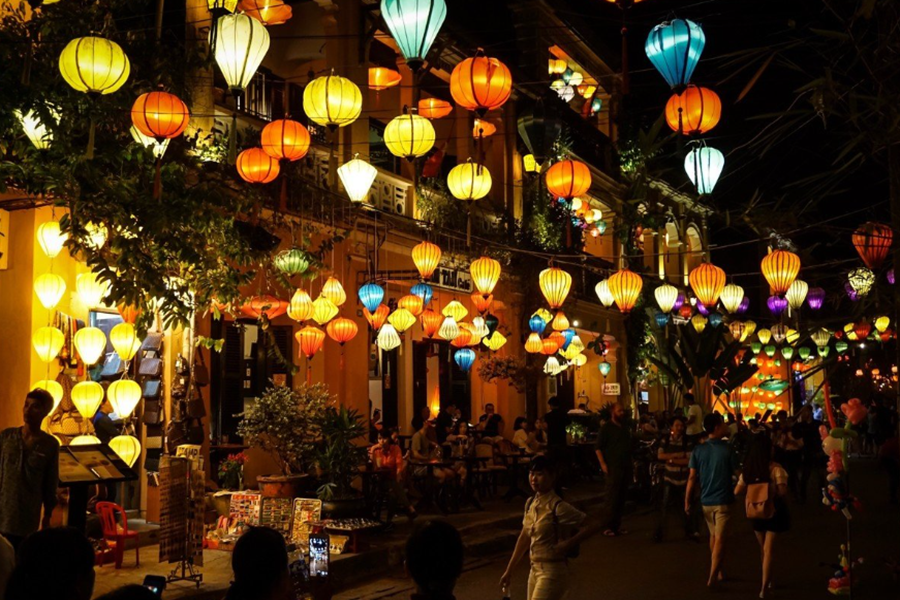

Known for its illuminated lanterns and charming ambiance, Hoi An specializes in handmade crafts, art, and jewelry. Vendors are friendly and open to negotiations, making it an enjoyable experience. Additionally, bargaining in Vietnam, particularly in such a picturesque setting, can be a memorable part of your trip.
4. Floating Markets (Mekong Delta)
A unique shopping experience awaits you in the floating markets of the Mekong Delta. In fact, bargaining in Vietnam takes on a whole new dimension here, often involving fresh produce or local specialties sold directly from boats.


🌟 Head over to the bustling Ben Thanh Market: Ben Thanh Market: Shopping & Street Food in Ho Chi Minh
4. Preparing to Bargain: What You Need to Know
1. Research Average Prices
Before stepping into a market, take some time to research the average prices of the items you’re interested in. This will give you a baseline and prevent you from overpaying.
2. Learn Basic Vietnamese Phrases
Knowing simple Vietnamese phrases like “Bao nhieu?” (How much?) or “Mac qua!” (Too expensive!) can help break the ice and show respect for the local language. Moreover, these phrases are essential for successful bargaining in Vietnam.
3. Have the Right Currency
Always carry Vietnamese Dong (VND) in small denominations. Vendors may not have change for large bills, and having exact amounts can make transactions smoother. Additionally, this will help you navigate the bargaining process more efficiently.
📸 Immerse yourself in Vietnam’s captivating culture. From ancient temples to vibrant festivals, there’s something for everyone. | Contact us via WhatsApp or follow Sun Getaways Travel Fanpage for personalized trip planning. Or follow these posts to explore the cultural wonders of Vietnam:
5. The Best Times to Visit Markets for Bargaining
Timing is crucial when shopping in Vietnamese markets. Early mornings are often the best time to strike a deal, as vendors are eager to make their first sale, a tradition believed to bring good luck for the rest of the day. Late evenings are another great time for discounts, especially as vendors look to clear out their stock.
6. Mastering the Art of Bargaining
1. Start with a Smile
Approach bargaining with a positive attitude. A friendly smile and a polite demeanor can set the tone for a pleasant negotiation.


2. Offer Half the Quoted Price
A common strategy in Vietnam is to counteroffer at 50% of the initial price. From there, negotiate upward until both you and the vendor are satisfied.
3. Stay Polite and Respectful
Bargaining is not a battle. Keeping your tone friendly and avoiding aggressive behavior will lead to better results and a more enjoyable experience.
4. Use Non-Verbal Cues
Body language can play a significant role in bargaining. Hesitate slightly or act disinterested to encourage the vendor to lower their price.
🔥 Want to learn more about Hanoi street food? Click here to read our in-depth guide.
7. When to Walk Away
Knowing when to walk away is just as important as knowing how to bargain in Vietnam. If the vendor refuses to lower their price to a reasonable level, politely thank them and leave. Often, they will call you back with a better offer. If not, don’t worry—most markets have multiple stalls selling similar items.
8. What to Bargain For
Certain items are ideal for bargaining in Vietnamese markets:
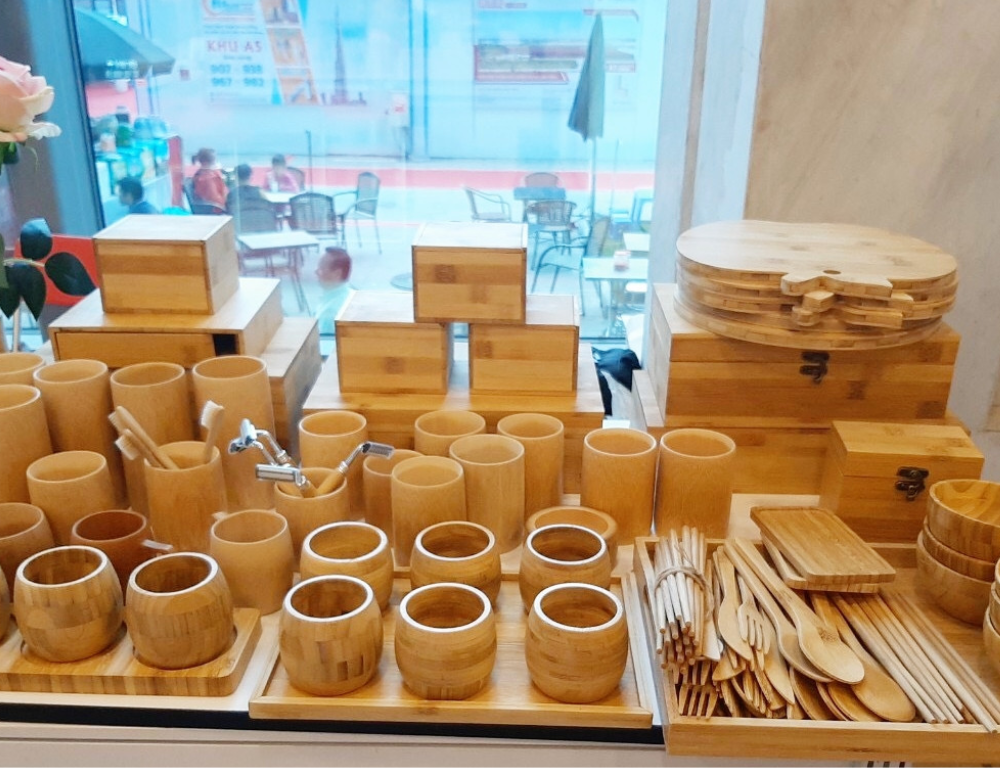

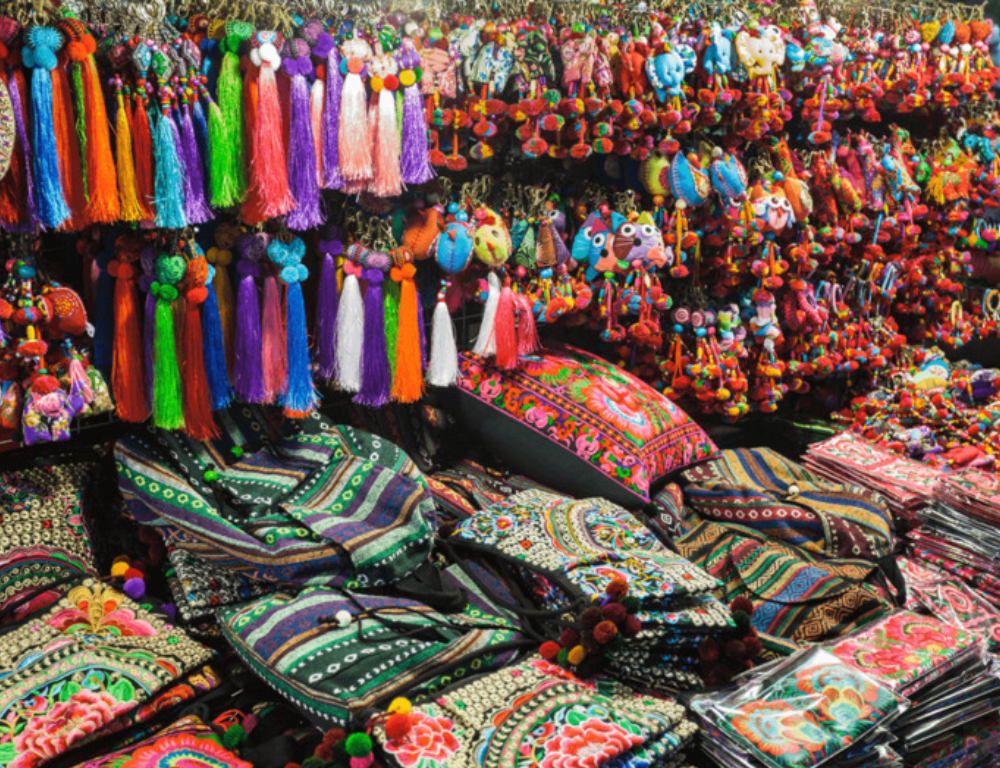

- Clothing and Textiles: T-shirts, scarves, and traditional Ao Dai are popular items for negotiation.
- Souvenirs and Handicrafts: Lanterns, wooden carvings, and ceramics are great finds.
- Fresh Produce: Fruits, vegetables, and spices often come with negotiable prices.
🔥 Ready to plan your ultimate Hanoi itinerary? Start here: The Ultimate Vietnam Packing List: Essentials for Your Southeast Asia Trip
9. What Not to Bargain For!!
Some items are better purchased without haggling:
- Street Food: Prices are typically fixed, and bargaining can be seen as disrespectful.
- Branded Goods: Products in official stores or malls usually have set prices.
🔥 Want to learn more about Hanoi street food? Click here to read our in-depth guide.
10. Avoiding Common Bargaining Mistakes
1. Don’t Over-Bargain
While bargaining is expected, pushing too hard for an unrealistically low price can offend vendors and damage the interaction. Therefore, it’s important to strike a balance between getting a good deal and maintaining a respectful relationship with the seller.
2. Avoid Comparing Vendors
Telling one vendor that another stall offers a better price can come across as rude and may shut down negotiations. Instead, focus on building rapport with the vendor and finding a price that works for both parties.
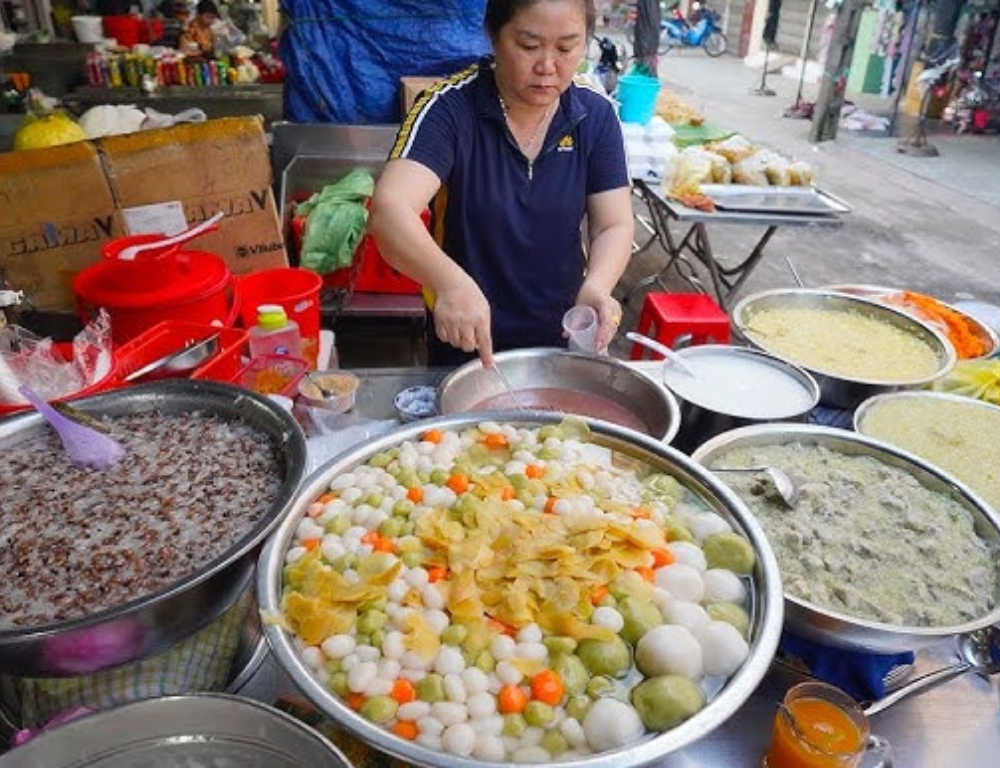

3. Stay Patient
Rushing through negotiations rarely yields good results. Consequently, take your time and enjoy the process of Bargaining in Vietnam. Remember, patience and politeness are key to successful bargaining.
11. Respecting the Local Culture
Bargaining is as much about respect as it is about price. Always approach vendors with courtesy and an open mind. Remember, the goal is to find a price that feels fair for both parties.
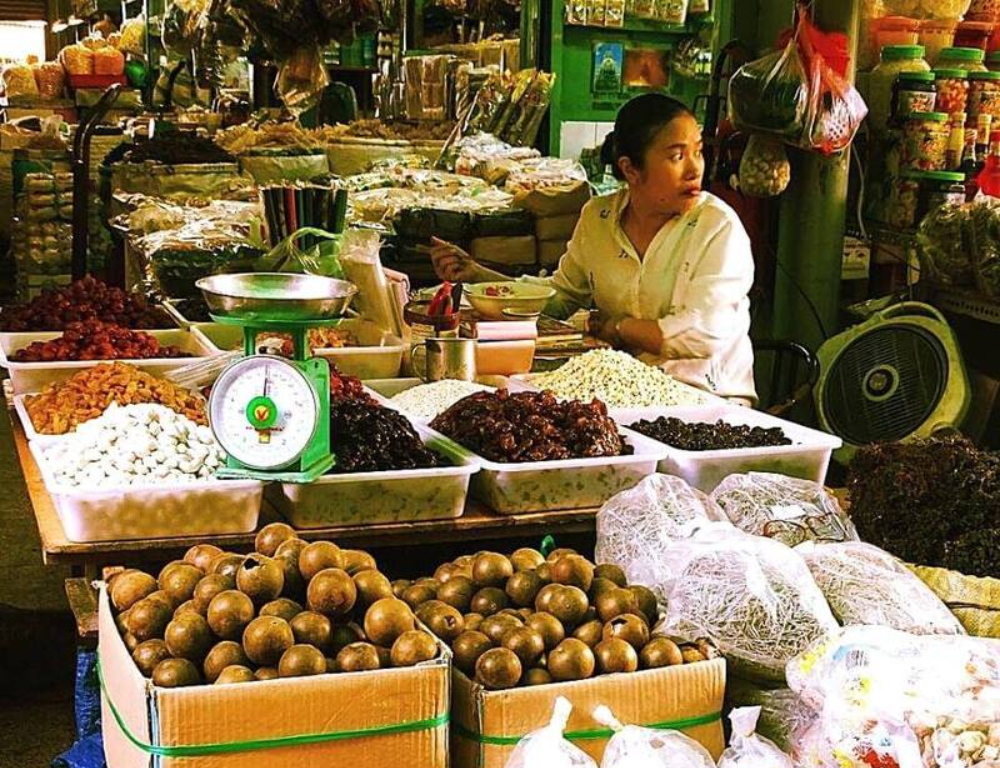

12. The Rewards of Mastering Bargaining
Learning the art of bargaining in Vietnam goes beyond saving money. It allows you to engage with the local culture, make genuine connections, and experience markets as the locals do. Whether you’re buying a souvenir or tasting unfamiliar fruits, every negotiation adds a layer of richness to your journey.
🔥 Discover hidden gems in Hanoi with our local insider guide: Hanoi Coffee ☕️
13. FAQs
1. Is bargaining common in all Vietnamese markets?
No, bargaining is primarily practiced in traditional markets and smaller shops. Fixed prices are the norm in malls and supermarkets.
2. How much should I bargain off the initial price?
A good rule of thumb is to start at 50% of the quoted price and negotiate from there.
3. What happens if I don’t want to bargain?
While it’s not mandatory to bargain, doing so enhances your market experience and often leads to better deals.
4. Can I bargain if I don’t speak Vietnamese?
Yes, many vendors understand basic English, and you can use gestures or a calculator to communicate.
5. What if I overpay for something?
Consider it a part of the learning process. The joy of shopping in Vietnam isn’t just about getting the lowest price but also about the cultural exchange.
14. Conclusion
Bargaining in Vietnam is an essential skill that transforms shopping into an unforgettable cultural experience. By embracing this tradition, you’ll not only score great deals but also connect with the vibrant energy of Vietnamese markets. Remember to approach every interaction with respect, patience, and a touch of humor, and you’ll leave with more than just treasures—you’ll gain memories to last a lifetime.
Experience Vietnam like never before with Sun Getaways Travel. Our all-inclusive trips cover every detail, from accommodations and transportation to unforgettable experiences, depending on your interests (Our Customized Private Tour for each customer to Vietnam 🇻🇳). Ready to embark on your next adventure?
Ask a question
Leave a Comment (0)
No questions yet. Be the first to ask a question!





















